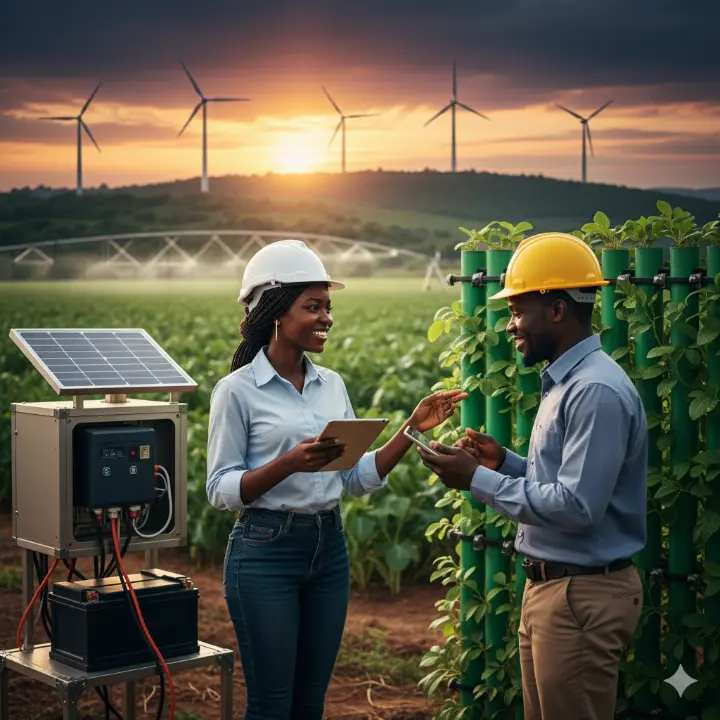The recent Africa Tech Festival 2025 in Cape Town wasn't just a meeting for tech CEOs; it was a blueprint for how technology will change your daily life across the continent.
Think of it this way: to build a modern city, you need roads, electricity, and clean water. To build a modern digital economy, you need digital roads and electricity. The festival showed us exactly where the money and effort are going to build these new digital foundations.

Image source: Africa Tech Festival
Here are the three biggest opportunities from the festival that will positively impact everyday life in Africa:
1. Building Giant Digital Factories: The Rise of AI
The main buzz was about Artificial Intelligence (AI), but for AI to work well, Africa needs powerful digital "factories" to process all the information.
- The Big Idea (Simplified): For a long time, African companies had to send their data thousands of miles away to Europe or America to be processed in giant data centers. This is expensive and slow. The festival signals that we are now building these advanced digital factories right here at home.
- Key Announcement to Know: Cassava Technologies teamed up with Nvidia (the world's top chip maker) to build these advanced AI systems in Africa. This is a huge deal; it means African innovators finally have local access to the most powerful tools needed to create smart apps and services.
- Opportunity:
- Faster and Safer Services: Banking apps, government services, and health platforms will work quicker and safer because the data stays on the continent.
- Local Innovation: African entrepreneurs can build AI tools that speak local languages and solve local problems, like smart farming apps that monitor soil specific to their region.

2. Digital Roads to Every Village: Connecting the "Last Mile"
Even with all the progress, many people in rural areas still struggle with expensive or non-existent internet access. The festival showed that companies are getting serious about closing this "digital gap."
- The Big Idea (Simplified): Telecommunications companies are teaming up with satellite providers to build new, fast digital highways that bypass difficult terrain and reach distant communities.
- Key Announcement to Know: Vodacom partnered with Starlink (a satellite internet provider). This means that Vodacom can now use powerful satellites to quickly and cost-effectively bring high-speed internet to small towns and businesses that were too difficult or expensive to reach with traditional fiber cables.
- Opportunity:
- New Markets for Small Businesses: Farmers and artisans in remote areas can now use platforms like WhatsApp or e-commerce sites to sell goods outside their local market.
- Better Public Services: Remote doctors can use telemedicine (remote diagnosis) to treat patients in villages without having to travel. Education and government services can reach everyone instantly.
3. Money and Tech Focused on Climate Change
Experts at the festival recognized that technology must urgently help Africa deal with the effects of climate change, from droughts to flooding.
The Big Idea: A new wave of investment money—called "Climate-Smart Capital"—is specifically looking to fund companies that use technology to protect the environment and make businesses more sustainable.
- Key Areas of Focus: The energy sector (solar, wind), agriculture (AgriTech), and water management were the main targets for this green funding.
- Opportunity:
- Smarter Farming: New AgriTech apps can give smallholder farmers real-time weather forecasts and tell them exactly when and where to plant, saving water and improving harvests.
- Cleaner Energy Solutions: Funding is pouring into companies that build small, affordable solar power systems (mini-grids) for homes and villages that don't have grid electricity, leading to cleaner energy and better health.
- Job Creation: This green pivot is creating new job roles, from installing solar panels and wind turbines to designing systems for efficient water use.

The takeaway from the Africa Tech Festival 2025 is clear: the continent is transitioning from simply using global technology to actively building its own digital foundation, paving the way for a more resilient and inclusive economic future.